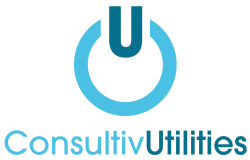Overflowing waste bins can be a major headache for businesses. From the unpleasant sights and smells to potential regulatory issues, poor waste management can disrupt operations and harm your company’s reputation. Managing waste effectively is not just about keeping your premises clean—it’s also about efficiency, cost savings, and sustainability.
Here are some practical waste management solutions that businesses can implement to manage overflowing bins:
Schedule extra pickups
If your business consistently generates more waste than your current collection schedule can handle, the simplest solution might be to arrange for extra pickups. This service is flexible and can be tailored to meet your unique needs, such as during busy periods or seasonal spikes in business activities.
Benefit: Immediate relief for overflowing bins, reduces clutter and hazards on-site.
By working with your utilities broker or waste management provider, you can determine the most cost-effective pickup schedule that keeps your waste under control without overspending.
Invest in extra bins
If waste overflow is a recurring problem, adding more bins can help. This is especially useful for businesses that handle a large variety of waste types, from food scraps to recyclables. Extra bins can ensure that different types of waste are properly sorted, which also aids in boosting recycling efforts.
Benefit: Easier to separate waste at the source, prevents overloading existing bins.
Opting for more bins may require a review of your available space and bin management practices to make the most efficient use of your area.
Conduct a waste audit
A waste audit is one of the most effective ways to identify where your waste is coming from and how to reduce it. During an audit, your business can analyse the types and amounts of waste being produced. This helps to identify areas where waste can be minimised or recycled more efficiently.
Benefit: Helps pinpoint waste generation hotspots, optimises waste management strategies, potentially uncovers recycling opportunities.
Waste audits can lead to significant long-term savings by helping you streamline waste processes, reduce unnecessary waste, and improve overall efficiency.
Boost recycling efforts
One of the most effective ways to reduce the volume of waste going to landfill is to boost your recycling efforts. Businesses can reduce their environmental impact while lowering waste disposal costs by recycling materials such as paper, plastic, and metals.
Benefit: Reduces landfill waste, lowers disposal costs, supports corporate sustainability goals.
To maximise recycling, businesses can invest in clear signage, provide recycling stations, and educate staff on proper sorting procedures. Partnering with a waste management company that offers recycling services can make this transition seamless.
Already recycling in your business, but need help to understand all the recycling symbols to ensure you are recycling contaminant free? Read our blog: Business waste: Recycling symbols explained
Focus on reducing waste at the source
Reducing waste at the source is the most sustainable option. This can involve strategies such as purchasing fewer disposable products, implementing more efficient production processes, or encouraging the use of reusable materials. The goal is to minimise the amount of waste your business generates in the first place.
Benefit: Reduces overall waste management costs, supports environmental sustainability, improves operational efficiency.
By implementing waste reduction initiatives, businesses can make significant strides toward sustainability while managing costs.
Partner with a waste management expert
Managing waste effectively requires a thoughtful, tailored approach. Partnering with a utilities broker can help your business identify the right combination of solutions—whether it’s extra pickups, additional bins, a waste audit, or improving recycling efforts.
A comprehensive waste management plan can not only prevent overflowing bins but also contribute to a cleaner, more efficient, and sustainable workplace. In the long run, adopting these practices will lead to cost savings, regulatory compliance, and a stronger reputation as a responsible business.
Want to speak to a waste expert? Contact us today.
Categories:
